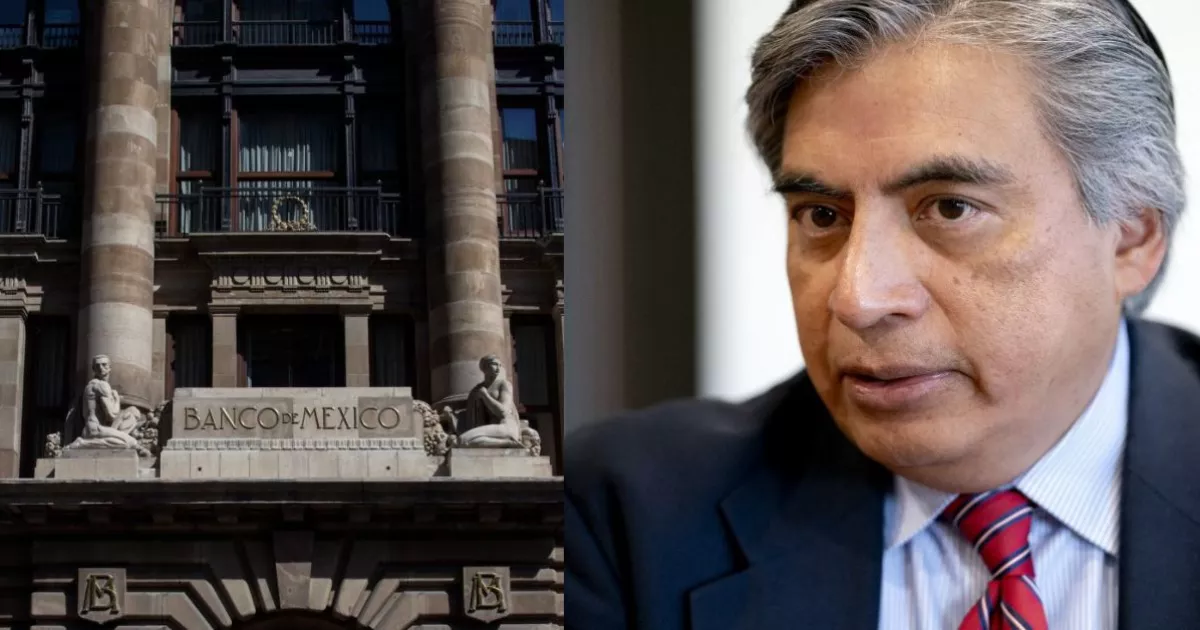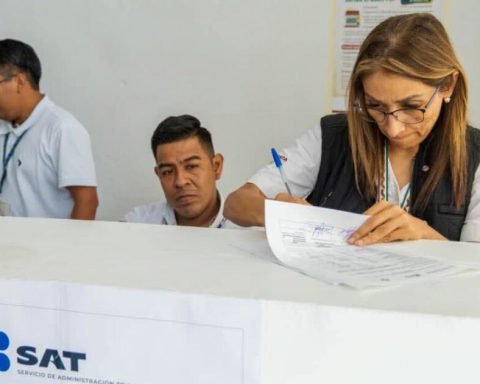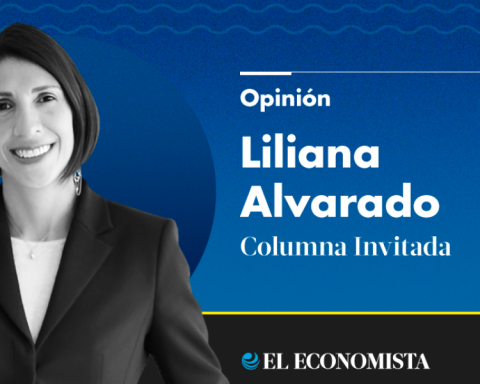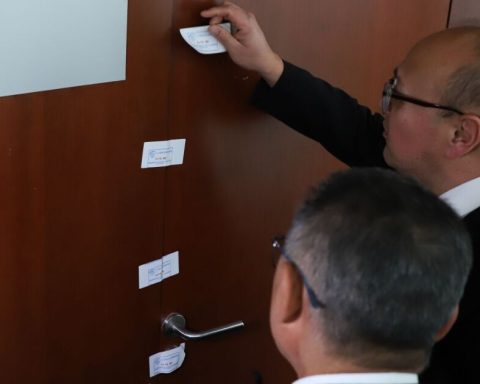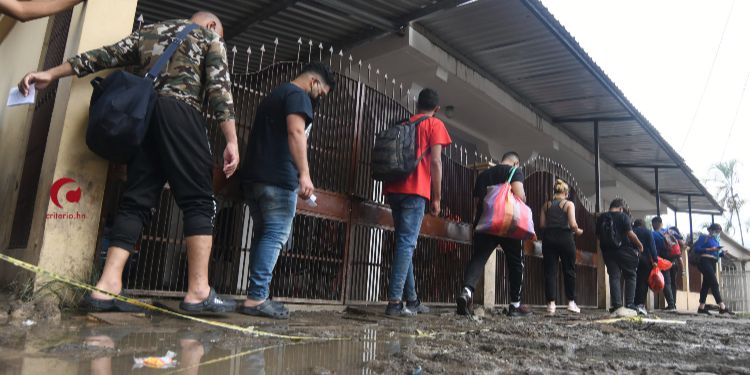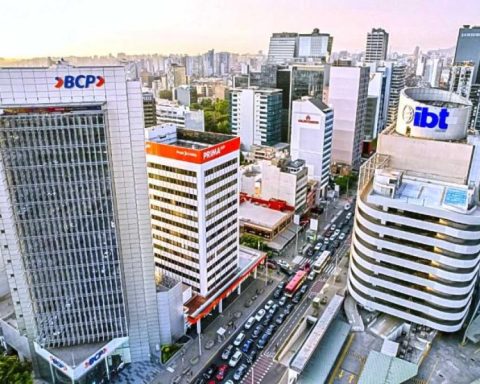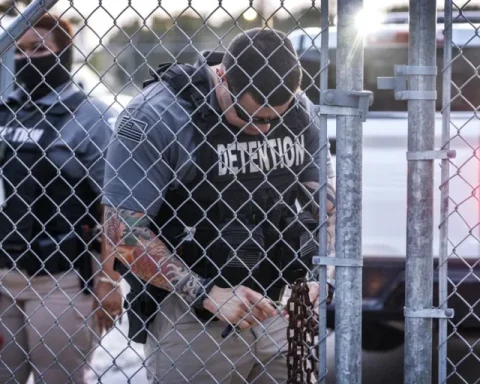Dressed in a navy blue suit, white shirt, pink tie and dress shoes, the deputy governor explains to the students and asks them questions to confirm that they are understanding, the class does not continue until the young people answer correctly. It is forbidden to be distracted or talk in class, those who do so are reprimanded and invited to leave the room.
Esquivel’s attire contrasts with that of other teachers in the building who dress more relaxed and whom he greets at the end of classes with familiarity.
He has taught at UNAM since before leaving his degree (in the same institution), and he assures that it is an activity that he has carried out and enjoyed for more than 30 years.
Esquivel, who belongs to the National System of Researchers (SNI) level III, is known among students for being a “rigorous and good” teacher, although absent. He has been absent on Thursdays, when monetary policy decisions are usually made known and in his place the adjunct professors come to give the class. The lieutenant governor trusts them because they are usually his former students.
He was also absent when, unexpectedly, President López Obrador nominated him as candidate to preside the Inter-American Development Bank (IDB). Alicia Bárcena, who had been the first option, declined for personal reasons and Esquivel had just three days to prepare for the interviews in Washington.
Upon his return, the professors he met in the corridors of the Faculty expressed their congratulations on the nomination and their condolences upon learning that the winner had been Brazilian Ilan Goldfajn .
That nomination was a nod to the fact that the relationship between President López Obrador and Gerardo Esquivel could be close even when the president I had accused him of “technocrat”.
The difference between the two characters occurred when in 2018, Banxico would receive 12,000 million dollars for Special Drawing Rights (SDRs) from the International Monetary Fund and the president wanted to use those resources to pay off the debt.
The members of Banxico’s Governing Board rejected that proposal and Esquivel himself said that the SDRs are not a currency but an international reserve asset, so they could not be used for that purpose.
Esquivel recently said that he has not spoken with the president since he proposed to be deputy governor of Banxico, so he has not asked him to renew another term in Banxico.
The president continues to evaluate the possibilities of naming a new person, ringing names like Lucía Buenrostro or Gabriel Yorio. The decision should be announced soon.
Esquivel’s arrival in Banxico
In 2018, Gerardo Esquivel was nominated to replace Roberto del Cueto, who resigned due to illness. Those were the times of transition: the López Obrador government was forming its team and the then Secretary of the Treasury and Esquivel’s former professor, Carlos Urzúa, sent the proposal to Congress, with the president’s endorsement.
The relationship between Esquivel and Urzúa is close. The deputy governor considers the ex-secretary of the Treasury “the best professor” he has ever had. In this chain of relationships between students and professors, Esquivel advised the thesis of another prominent member of the Obrador cabinet: Arturo Herrera.
(Misael Valtierra/Dark Room)
Arturo Herrera has been in the public eye since last year, when he emerged as Governor of the Bank of Mexico and from whom his appointment was removed in November 2021. In his place, Victoria Rodríguez was nominated.
In the second half of 2018, the term of Deputy Governor Manuel Ramos Francia also ended; instead they nominated the doctor in Economics, Jonathan Heath . Both deputy governors were ratified on January 23, 2019.
The arrival of Gerardo Esquivel to Banxico, according to economists from Franklin Templeton, was “a favor”, since at first he was shaping up to be the undersecretary of Treasury Expenditures.
In his ratification, Esquivel even sent a letter – at the request of some legislators – to express his commitment to act independently and with respect for the autonomy of Banco de México.

(Mario Jasso/Dark Room)
So close and so far from the IDB
Esquivel, who has a PhD in Economics from Harvard University, is recognized for his studies on inequality in the country and has worked with Oxfam, an organization that seeks to combat poverty in Mexico through campaigns and research.
One of his publications in the organization was “Extreme Inequality in Mexico. Concentration of Economic and Political Power”, which you can find at this link .
He worked as a researcher at Harvard and was a visiting researcher at the International Monetary Fund (IMF).
He has been a consultant to organizations such as the OECD, ECLAC, the World Bank and the IDB. Esquivel has been awarded recognitions such as the “Ramón Beteta Quintana” Economics Prize and the National Public Finance Prize.
In 2005, he received the Social Sciences Research Award, the most important distinction granted by the Mexican Academy of Sciences and which is awarded annually to the most outstanding researchers under 40 years of age in various areas of knowledge.
He also received the National Journalism Award in the category of Editorial for his text published in the magazine Nexos on the measurement of poverty in Mexico.
